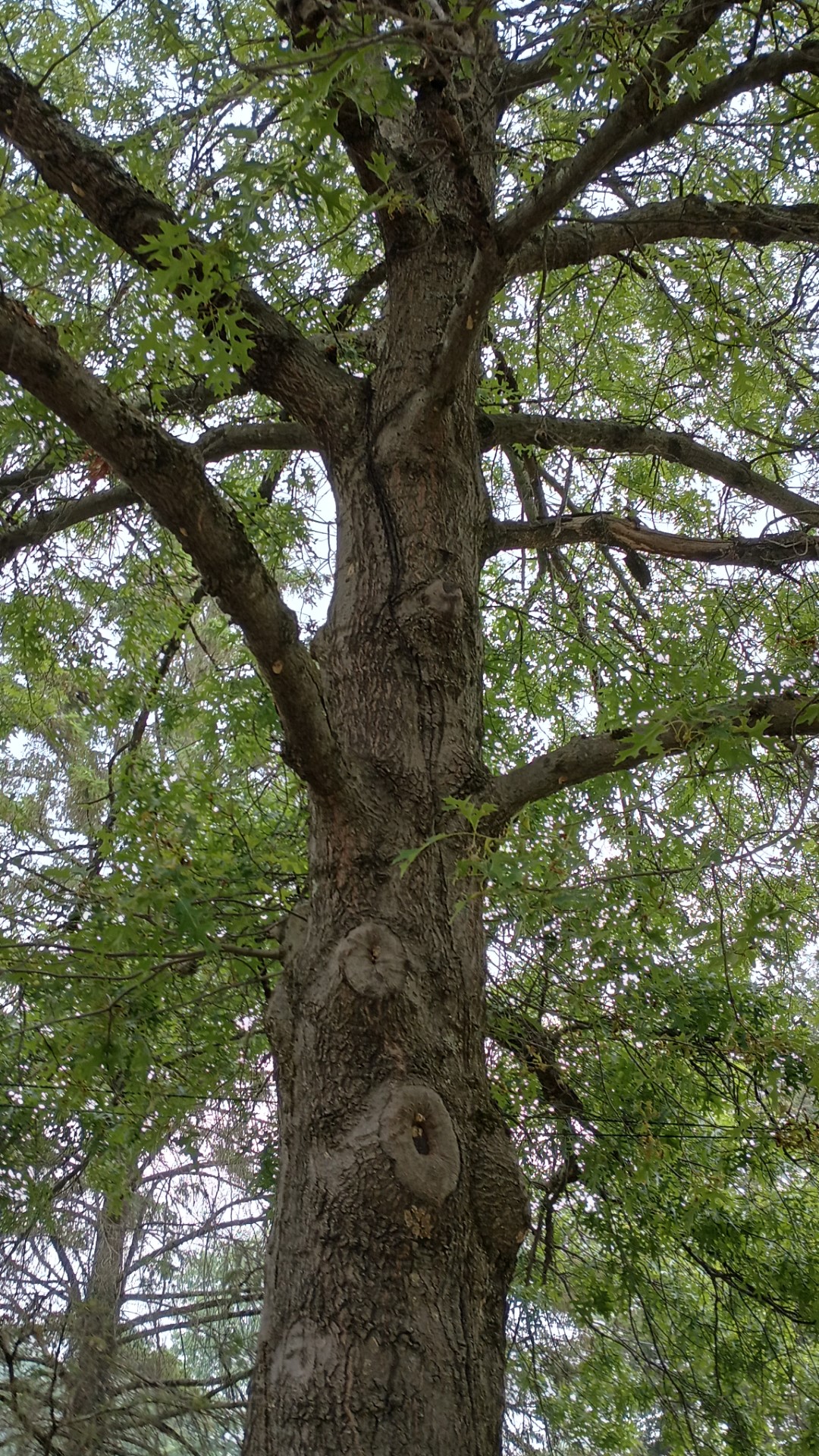The Oak Outside My Window
by Torie Wells

Water droplets bounce off the outstretched arms of the decades old oak tree that grows outside my office window, where I write. Despite the cool rain that falls, I push open the paned glass in an attempt to bring the oak closer. The gentle wind makes her fragile new growth dance and sway, like dozens of earrings she’s pulled out of her jewelry box to brighten up her outfit for another spring.
I look forward to this change in seasons too, feeling it as a creative reset. Much like a spring or fall cleaning of the ideas that have piled up in my mind and in my journal, this change is a prompt to organize those thoughts into sentences, into stories.
I know some of this renewed focus, renewed reflection, hinges on my obsession with setting and sense of place. Seasons, nature, weather—they all influence our characters and their worlds, their stakes and their conflicts. So why wouldn’t they influence our own lives, our own creativity, too? But as I look at the changing oak tree, I think it may be more than that. More than the shift in time that offers movement to my life, as barren branches sprout young, green leaves that fade into bright, bold orange. It’s more, I think, than the inspiration nature’s art offers, made new with each season. More than her colorful leaves, her hills blanketed in snow, her hopeful growth that arrives overnight, her long, warm summer light that stretches into evening.
When I’m done going through my journal, I turn to my computer and read about the seasonal change trees undergo. I think there’s an element of nature’s wisdom here that I’m latching onto. Like in autumn, when the most breathtaking parts of the oak tree die and fall away, yet the tree remains, even thrives. She sheds her leaves as she prepares for colder weather, shorter days, ice and snow. She lets go of the pieces that no longer serve a purpose and would just weigh her down, putting her limbs at risk of breaking. I also learn that a special layer of cells grows where the stem of the leaf connects to the tree, cutting one off from the other. A protective scar remains.
That the tree has the wisdom to shake off what she no longer needs is instructive. That she allows those pieces to decompose at her base and feed her future is clever. That she has the grace to honor those pieces through vivid beauty feels like an act of gratitude. And it acts as an invitation to take stock of what in my writing no longer serves the whole and let it fall away. I realize I do this when I toss scraps of paper with ideas that no longer inspire me, or slash through prose that is superfluous.
But that work is for autumn, for another season. Right now, nature tells me that spring and then summer are generative. They are a time for creating the prose I may later sift through. The oak held onto her buds throughout the cold months, much like the ideas that have sat within the pages of my notebook or still turn over in my mind. The warmer days have encouraged the buds to open and prepare for a flood of new energy and growth throughout the summer. I feel that energy bubbling up within me too. I feel it in the rising birdsong I’ve yearned for all winter. In the evening sun I’ve waited patiently for through the cold, short days. And in the hopeful irises that slept under the snow and now pop up from their slumber within my garden.
The oak tree’s spring invites me back outside to explore nature’s newest artwork—like those irises—to take longer walks among the trees, and to sit on a bench in the sun. I’ve learned that in stepping away from my computer and outside my door my writing will flourish. That when my window is open, so is my mind. And I know I’m not alone in these lessons.
This is a season of creating. A season of searching for and leaning into inspiration. Outside the window where I write, the soft green leaves on the oak tree move in rhythm with the wind as she shows off her newest creations. Now it’s your turn, she says. I place my fingers on top of my keyboard, as my mind begins to dance.

Torie Wells is a writer who recently completed her MA in nonfiction writing at Johns Hopkins University. She reads fiction and nonfiction submissions for The Baltimore Review.
